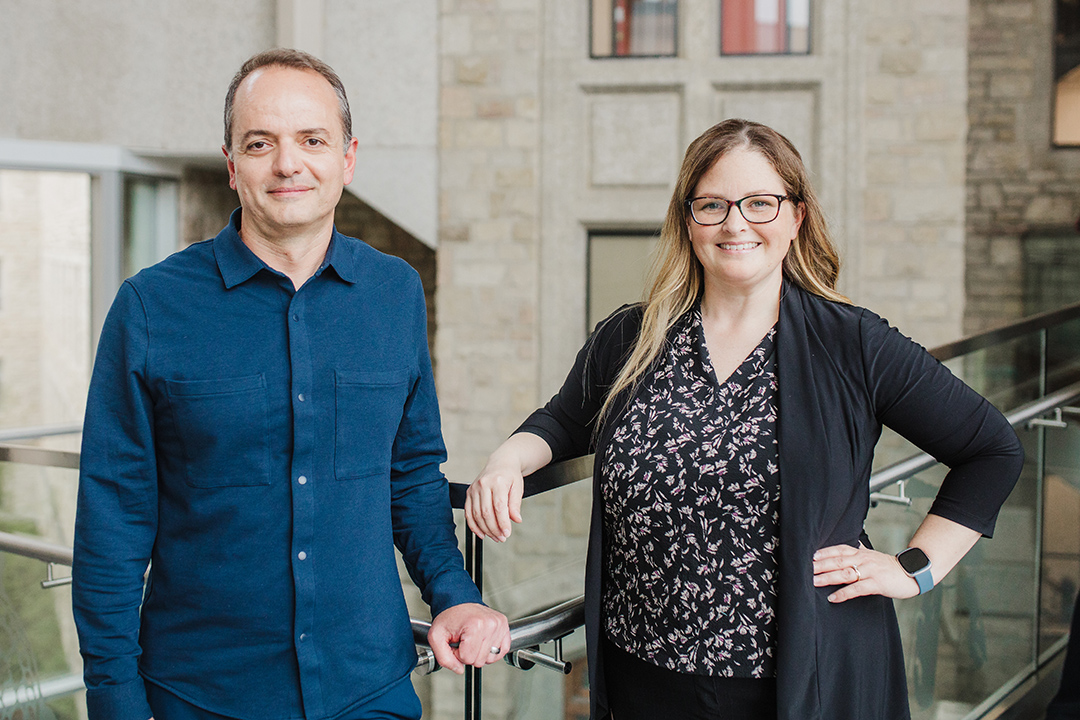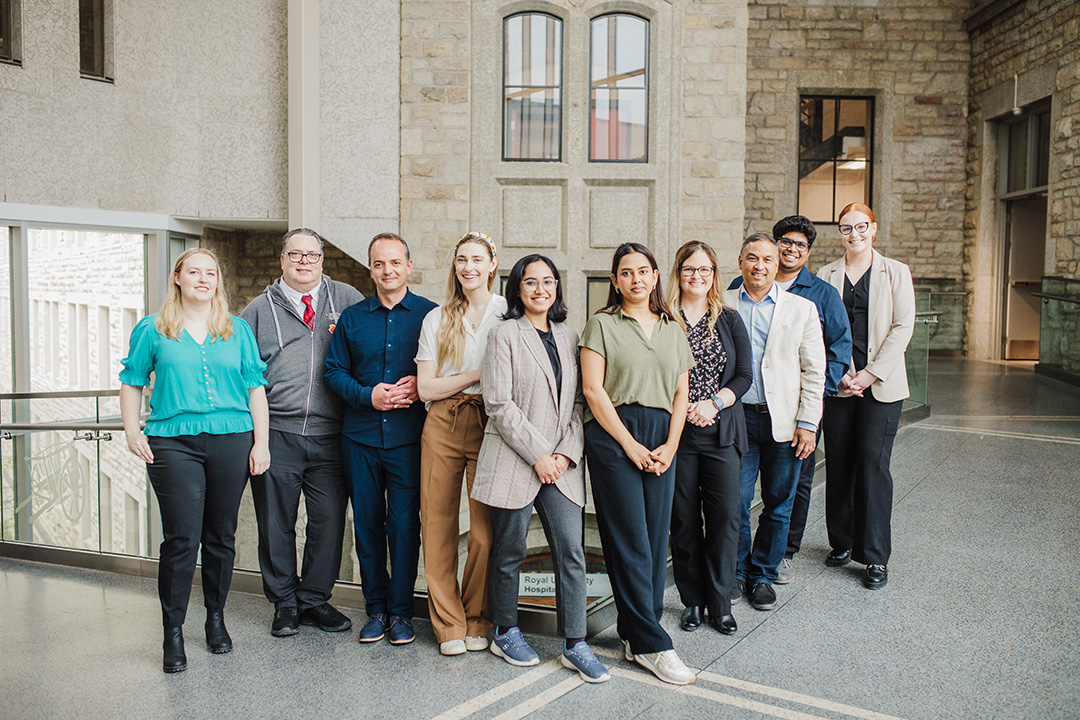
WCVM researcher earns award for graduate student mentorship
A cancer researcher and faculty member at the Western College of Veterinary Medicine (WCVM) has received a University of Saskatchewan (USask) award for his exceptional efforts in student mentorship.
By Tyler SchroederDr. Behzad Toosi (DVM, PhD), an assistant professor in WCVM’s Department of Small Animal Clinical Sciences and Allard Research Chair in Oncology, received the Best Supervisor Award (Doctoral) at the university’s 2024 Life and Health Sciences Research Expo on May 2.
In his acceptance speech, Toosi said that he’s honoured to win the award as he takes pride in his role as a supervisor.
“As much as its important for me to be a good scientist, it’s important for me to be a good supervisor,” he said.
He added that the award also belongs to his team, who have mentored him as well.
“My graduate students have been great teachers for me, too. When I started this position in 2019, I thought I had some idea of how to lead a research team. But when I began the work, I realized there was a lot to learn. It has been an amazing journey for me.”
The student-nominated award honours a faculty supervisor who has provided outstanding mentorship and guidance to graduate students in the health sciences at USask.
“He truly cares about his students, not only in their progress and development as scientists but how they're doing as people,” said Dr. Jessica Sharpe (DVM), a PhD student based in WCVM’s Department of Small Animal Clinical Sciences.
Nominating Toosi for the best supervisor award was an easy decision for Sharpe, who admires her research mentor’s patient and calm approach to problem solving in the lab.
“His open-door policy means that he’s always available for any questions or concerns, no matter how busy he is. When things aren’t going the way we expect in the lab, it can be really frustrating. But he’s always willing to offer helpful advice and be there when we need him.”
As a research chair, Toosi has developed the Comparative Oncology Research Group (CORG) that includes members from across the USask campus. The research group focuses on the study of cancer in humans and companion animals, using a One Health approach in exploring new diagnostic and therapy options.
Sharpe said that Toosi’s collaborative research program gives value to accomplishing goals as a team.
“He says that collaboration is better than competition. So much of our student life really sets us up to compete with each other,” said Sharpe. “In his lab, we help each other with our work and we really want each other to succeed.”

Sharpe, who practised veterinary medicine in Florida for nearly six years, was first introduced to Toosi’s work in comparative oncology after talking to one of his summer research students during the WCVM’s undergraduate research poster day in 2019. She met with Toosi to discuss his research program, and soon after, she joined his lab as a master’s student.
“I came into research wanting to focus on important diseases in veterinary medicine. My previous work as a practicing veterinarian allowed me to see how devastating a lot of cancers are for animals like cats and dogs.”
After completing her master’s degree in 2023, Sharpe stayed on in Toosi’s lab as a PhD student to continue researching osteosarcoma, a type of bone cancer that’s similar in dogs and humans.
“Our work involves studying a family of receptors called the Eph receptors. They play an important role in regulating the aggressiveness of the cancer, and their signalling may be able to be targeted to aid in treatment.”
Studying cancer in a comparative context between two species aligns with Sharpe’s goals of helping animals and humans deal with disease. She plans to expand her research into other types of cancers, with the ultimate aim of improving treatments and prognoses.
Sharpe said that Toosi’s award is well deserved, and she’s glad to see him recognized for his influence on the USask research community.
“His dedication and commitment to his students really sets him apart, and he works hard to create a positive environment for his students,” said Sharpe. “It’s great to wake up in the morning and want to come to work.”
